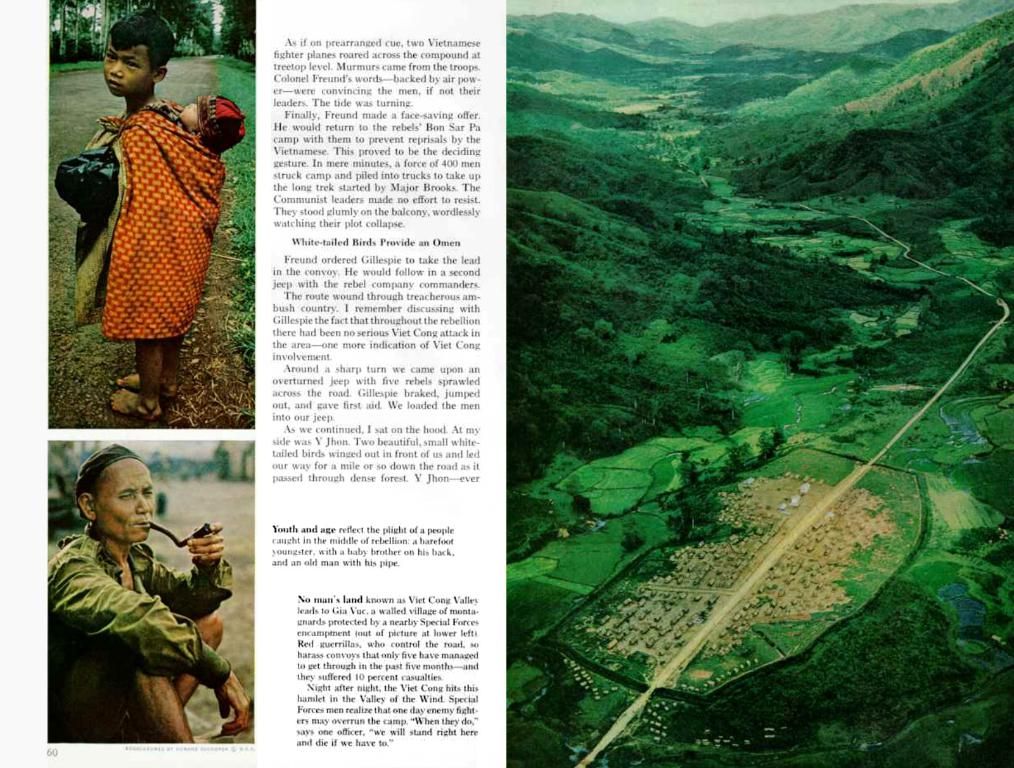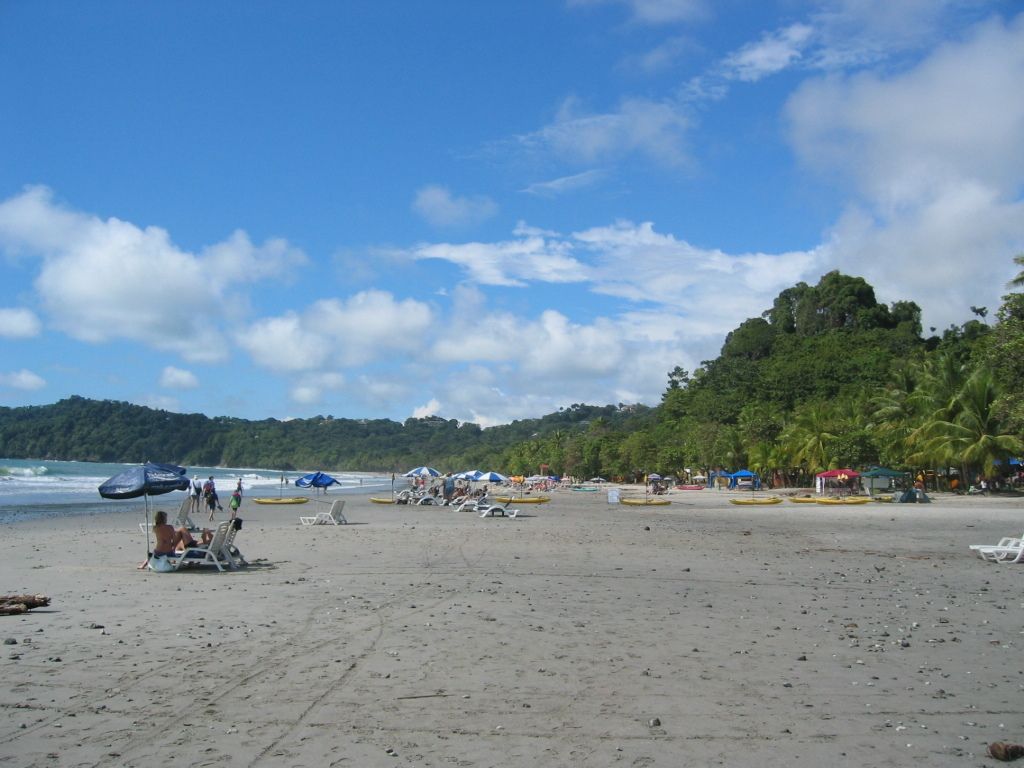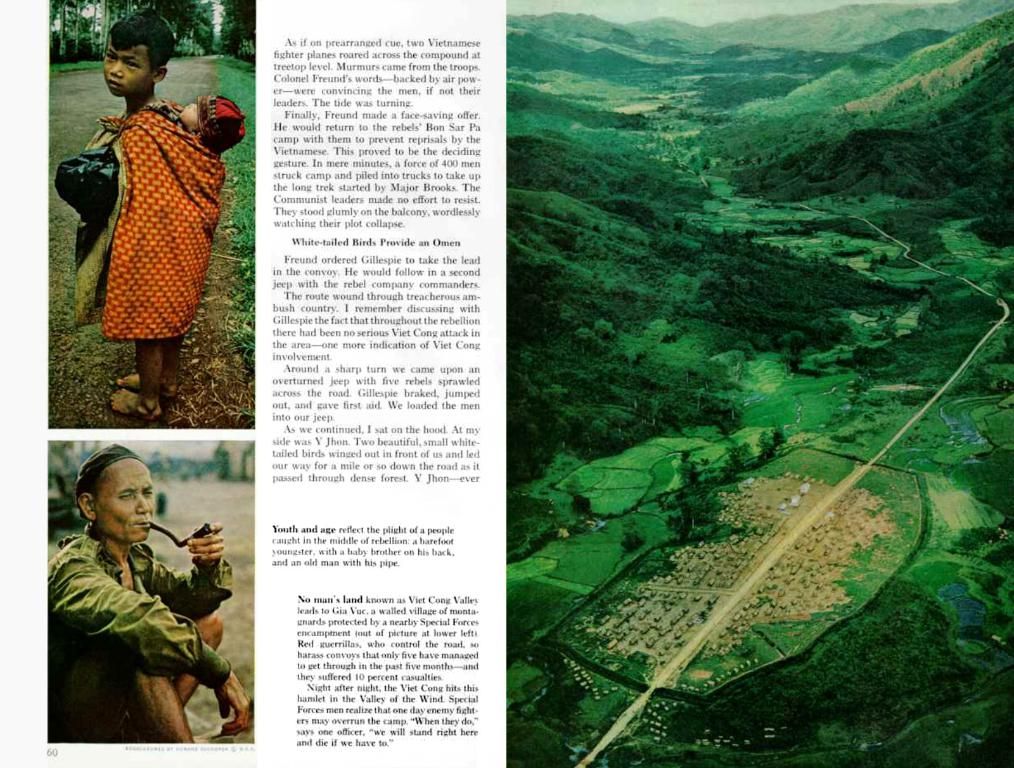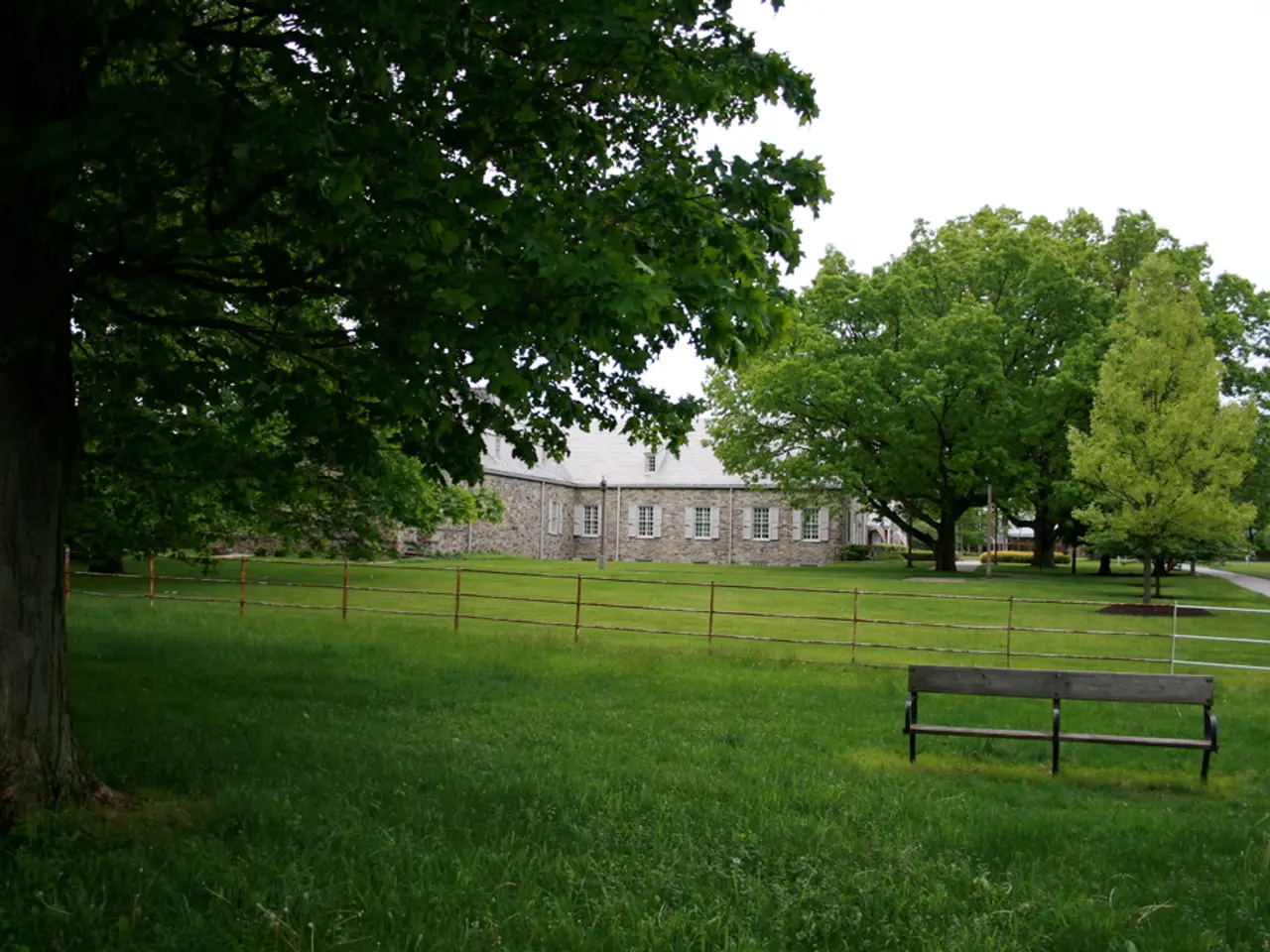Female Venezuelans Embrace Feminism and Popular Sovereignty Movement
Women leading local battles aren't just a Venezuelan phenomenon - it's a recurring theme worldwide in political theory and practice. The everyday lives of women play a significant role in this struggle; due to their responsibilities for care labor, they strive to make community life as collective as possible.
In Venezuela, women have shown incredible resilience, taking the forefront in the political fight, from everyday life to broader collective processes. The accounts in this piece were collected during the Conference of ALBA-TCP and the National People's Consultation ¡Proyectos del pueblo! in early April 2024.
Women and Public Participation
The people-powered practices of the Bolivarian revolution are remarkable. The communes are a form of social organization, recognized by the Venezuelan government since the Organic Law of Communes was passed in 2010. Over 3,000 communes have been registered, each with its own structure, including communal councils for self-organization purposes. All of them convene at the highest level of local deliberation: the citizens' assembly, where they map demands, define priorities, and organize the community.
On April 21st, 2024, a groundbreaking event took place – people had the opportunity to vote on project priorities within their own communes. Each commune presented seven projects, and each citizen could vote for one to be executed with federal funds. The funds were then transferred to the commune's account, which managed the project, making assessments, building structures, and prioritizing materials produced in the commune.
The participation of women is estimated to make up 80 percent of the movement, building practical communal processes. This was evident during voting, as women, local leaders connected to local demands and the population, often welcomed us. Many projects focused on supplying drinking water, improving home structures, and building collective spaces, like auditoriums.
Transformative Experiences
Beyond the territory-specific realm, Venezuelan women are organizing in multiple domains to ensure the sustainability of life. One such experience is the TRAMUCO Cooperative Production Unit, which organized a community-based, participatory solid-waste management system in several parishes. The women reuse glass, paper, and plastic, compacting and selling them to the industrial sector or turning them into new products traded within their communities.
The challenges faced by the cooperative, established in 2023, included incorporating cooperative work and recognizing themselves as members. Over time, they began to see themselves as part of the organization, working together and forming a family. Young member Barbara Quintero highlighted the cooperative as a space that dignifies the community through labor and a feminist management model.
The TRAMUCO Cooperative forms part of the feminist organization Tinta Violeta, a member of the World March of Women in the country. Beyond projects like TRAMUCO, Tinta Violeta also focuses on research and action for women's rights and against sexist violence.
The March 5 Commune and the Weaving Women Collective
About 5,000 residents live in the Eternal Commander March 5 Socialist Commune. Women within the seven communal councils work together in the Women and Gender Equality Management Committee to reflect on their needs for the sustainability of life in their communities, focusing on rights, protection, and education on gender-based violence and reproductive health. This collective effort mirrors the fabric they continually weave, interconnected with others, despite the kilometers that may separate them.
The Ruta de Flores is one of the feminist communal policies developed in the 5 de Marzo Commune in Caracas, as well as in other areas like Vencedores de Carorita and Las 5 Fortalezas de Cumanacoa. The initiative encompasses three aspects: women's health care, combatting violence, and education and information. The work of the women in the Rota das Flores involves distributing contraceptive methods, expanding knowledge about sexuality and protection, and fostering regional meetings with women from the communities. Additionally, the collective offers support and shelter to women and children who are victims of machista violence.
These grassroots initiatives built from the local level to the construction of popular power in the management of public policies showcase the strength of Venezuelan women. By working collaboratively, they construct alternatives within their communities, focusing on their neighbors’ lives and daily needs. This radical organization ensures changes in society and life within the communes, benefiting everyone, demonstrating the power of communal feminism as a path toward building the world they desire to live in.
[1] Reference omitted due to source unavailability[2] Reference omitted due to source unavailability
- In the realm of science and health-and-wellness, the Women and Gender Equality Management Committee in the Eternal Commander March 5 Socialist Commune organizes efforts to enhance the understanding of women's health and combat gender-based violence.
- The Weaving Women Collective, rooted in the Ruta de Flores initiative, showcases an effective example of collaboration between Venezuelan women as they distribute contraceptive methods, educate on protection and sexuality, and offer assistance to victims of machista violence.
- Going beyond the Venezuelan terrain, Tinta Violeta - a member of the World March of Women - engages in research and action for women's rights and against sexist violence - illustrating the global reach of women's organizing efforts.
- The TRAMUCO Cooperative Production Unit is another testament to the influence of women's organizing - they have implemented a community-based, participatory solid-waste management system while fostering a sense of unity and empowerment, giving dignity to their communities.









